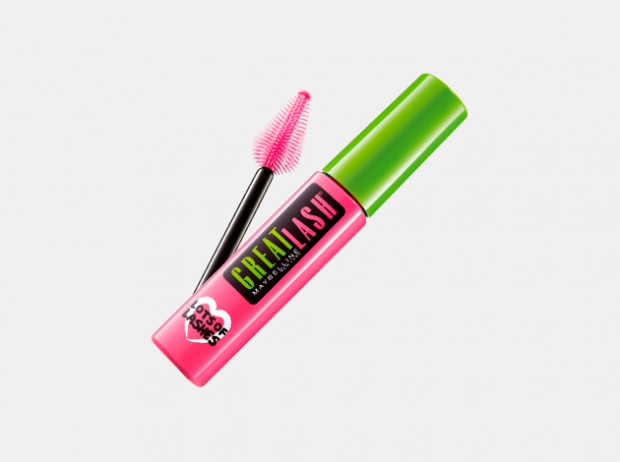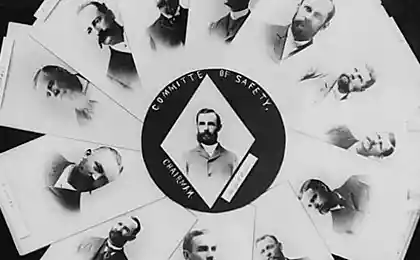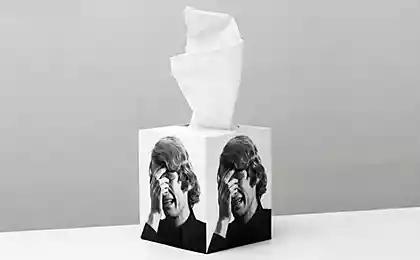528
Buyers still believe "research"
Even if "scientific arguments" in favor of the goods look dubious, people still tend to trust im
Anyone leafing through magazines, probably noticed this strategy: to make the product look better it is surrounded by a halo of "scientific." "Clinical trials have shown that the lashes increased by 400%!" "27% reduction of dark spots for 10 weeks!" "Ceramide»!
But can it really convince people to pay money?
A study conducted with the help of promotions of counterfeit medicines found what may well be.

"Charts convince credibility," - says Aner Tal, a researcher at the University of Cornwell. He said that during scientific presentations scientist is always recommended to use large graphics and figures to make the arguments more convincing. If so, this approach operates on academics, what will happen to ordinary consumers?
However, the laboratory director Brian Wansink Tal invented an imaginary description of the drug. Then, I read a description of 61 people. "A large pharmaceutical company has recently developed a new drug that increases the immunity of the person" - read the test. Half of the subjects Tal gave only such text. The second half got acquainted with the "test results" of the drug, which "supported by" histograms.

Thereafter, subjects had to fill out a questionnaire, and to assess the 9-point scale, how effective the proposed remedy. In fact, people have gotten the same information, but those who received the information provided in the form of a graph, evaluated the efficacy of the drug is much higher than the "text" subjects. After this, the researchers had put more number of experiments, which were used not only graphics, but also chemical formulas and other such scientific paraphernalia.
Scientists have come to the following conclusion: people are more likely to trust information that accompanies the "aura of scientism." They pay more attention to the materials when they meet "scientifically-looking" elements, such as formulas or histograms. And this effect might be particularly strong if the reader finds himself in favor of science.
The obvious recommendation for consumers in such a situation can only be one thing: a deaf ear to advertising that tries to somewhat convince using "scientific aura».
via factroom.ru

Anyone leafing through magazines, probably noticed this strategy: to make the product look better it is surrounded by a halo of "scientific." "Clinical trials have shown that the lashes increased by 400%!" "27% reduction of dark spots for 10 weeks!" "Ceramide»!
But can it really convince people to pay money?
A study conducted with the help of promotions of counterfeit medicines found what may well be.

"Charts convince credibility," - says Aner Tal, a researcher at the University of Cornwell. He said that during scientific presentations scientist is always recommended to use large graphics and figures to make the arguments more convincing. If so, this approach operates on academics, what will happen to ordinary consumers?
However, the laboratory director Brian Wansink Tal invented an imaginary description of the drug. Then, I read a description of 61 people. "A large pharmaceutical company has recently developed a new drug that increases the immunity of the person" - read the test. Half of the subjects Tal gave only such text. The second half got acquainted with the "test results" of the drug, which "supported by" histograms.

Thereafter, subjects had to fill out a questionnaire, and to assess the 9-point scale, how effective the proposed remedy. In fact, people have gotten the same information, but those who received the information provided in the form of a graph, evaluated the efficacy of the drug is much higher than the "text" subjects. After this, the researchers had put more number of experiments, which were used not only graphics, but also chemical formulas and other such scientific paraphernalia.
Scientists have come to the following conclusion: people are more likely to trust information that accompanies the "aura of scientism." They pay more attention to the materials when they meet "scientifically-looking" elements, such as formulas or histograms. And this effect might be particularly strong if the reader finds himself in favor of science.
The obvious recommendation for consumers in such a situation can only be one thing: a deaf ear to advertising that tries to somewhat convince using "scientific aura».
via factroom.ru
On the weight and health affects not only what you eat, but when you do it
Your water footprint on the planet: 8,000 liters per day























